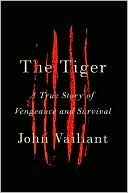More on this book
Community
Kindle Notes & Highlights
Under Stalin, science was a prisoner, too—bound and gagged by a particularly rigid brand of Marxist ideology, which declared, in short, that in order for Mankind to realize His destiny as a superhuman, super-rational master of all, Mother Nature must be forced to bow and, in the process, be radically transformed. By the mid-1930s, most advocates of environmental protection had been silenced one way or another, and their ideas replaced by slogans like “We cannot expect charity from nature.16 We must tear it from her.” In 1926, Vladimir Zazubrin, the first head of the Union of Siberian Writers,
...more
If a lion could talk, we would not understand him. LUDWIG WITTGENSTEIN1
IN 1909, AN ESTONIAN-BORN BARON-TURNED-PHYSIOLOGIST NAMED Jakob von Uexküll introduced the concept of Umwelt to the world. Uexküll is considered one of the fathers of ethology, which is also known as behavioral ecology. It is a young discipline whose goal is to study behavior and social organization through a biological lens. “To do so,” wrote Uexküll in “A Stroll Through the Worlds of Animals and Men,” “we must first blow, in fancy, a soap bubble around each creature to represent its own world, filled with the perceptions which it alone knows. When we ourselves then step into one of these
...more
There were big cats, hyenas, and wolves all along the way, and this may be one reason most of our hominid relatives never made it. It is striking, too, that, unlike so many other species—cats, for example—we are the only branch of our family (Hominidae) who survived the journey. In this sense, we are evolutionary orphans—a broken family of one, and it puts us in strange company: we share our genetic solitude with the platypus, the gharial, and the coelacanth.
Barrett assembled two groups of children aged three to five; one group was made up of German preschoolers and the other was composed of Shuar, a tribe of subsistence hunter-agriculturalists from Ecuador’s Amazon basin. Needless to say, these two groups of children had radically different cultural reference points and experience with animals. The experiment was elegant in its simplicity. Using a toy lion and a toy zebra, Barrett asked each child, “When the lion sees the zebra, what does the lion want to do?”6 The results were surprising: 75 percent of the three-year-olds in both groups answered
...more
The brandname Viagra is derived from vyaaghra, the Sanskrit word for tiger.


